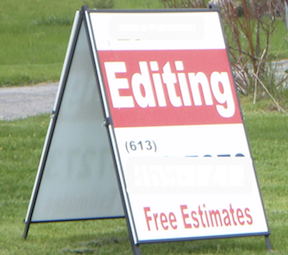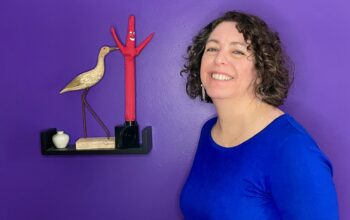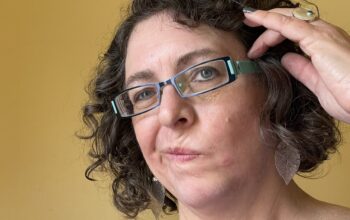 My first paid clip was likely for Wavelength Magazine back in 1996 (a sea-kayak rag that I still adore) or for Abilities Magazine, about a kayaking adaptations for a variety of disabilities, which I remember paid $150 for the cover feature.
My first paid clip was likely for Wavelength Magazine back in 1996 (a sea-kayak rag that I still adore) or for Abilities Magazine, about a kayaking adaptations for a variety of disabilities, which I remember paid $150 for the cover feature.
But my first paid science gig was ghost-writing a teacher’s guide and set of handouts for a grade 9 science course for a major Canadian educational publisher. I think it paid me $7000 because I had an “editor” title and responsibility for the endless detailed tasks that come with that. If I remember correctly, the author was getting a $2000 advance on royalties for his part. Usually the advance is all an author ever gets.
And THAT pay inequity is why I am a science editor today.
Primarily, what I still do is ghost-writing school textbooks. (Shh, that’s a well-known modus in educational publishing, but usually not spoken of). I mostly got the gig because I was comfortable enough with chemistry to say yes when it was offered. This is in contrast to how I got into editing math: saying no three times before finally accepting the assignment with strong disclaimers about my lack of math skills. There seems to be even less competition for math editing than there is for chemistry. (Note that I am usually not offered biology editing, and never offered history. I think there is far more competition in those subject areas.)
I was reading a blog post of collected “first clip” stories from successful science writers and was really excited by the variety and humble/fearless nature of their origin stories. The writer said that most people don’t set out to become a science writer, it’s something they stumble into. The same is true for the vast majority of editors. Until recently there wasn’t even formal education available to wannabe editors: we all had to learn on the job.
So tell me, not about the years of being the “go to” editor in your circles, but tell me about the gig that first signalled to you that you were a bona fide editor.
“I had been editing full-time for 14 years before I accepted that this job wasn’t just temporary. So it took me 14 years to declare myself an editor.” — Rita VH
Also, aspiring science writers or editors should read this post on how to break into science writing.
UPDATE: This post about whether or not to specialize also talks about how a specialism can help you get a foot in the door.
Starter Kit for Editors category | Finding Work | Office Essentials | Background Skills | Is Editing for You? | Reading List | Estimating Your Pace | Setting Fees




How to become an editor » Right Angels and Polo Bears